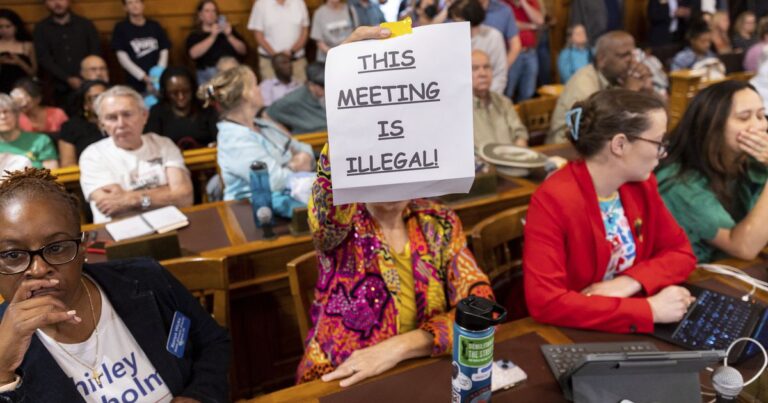Their partisan activism is only part of the problem: The Trump-linked elections board has already passed a series of controversial changes to the state’s election rules, drawing public praise from Trump and his ally, Cleta Mitchell. I was grateful. They praise them for “fighting so hard for us!!!” For example, the Commission illegally reopened an investigation into Fulton County’s 2020 election, following the advice of partisan private lawyers and against the advice of the Attorney General, to pursue conspiracy theories that had long ago been debunked. In another particularly egregious example, the Commission passed a rule allowing local election officials to refuse to follow state law requiring them to certify the results of an election if they decide to conduct a “reasonable investigation” into the accuracy of the vote count before voting to certify the results. As a result, county election officials may try to delay certification until they have investigated every possible claim of “fraud” circulating on social media, local gossip, or elsewhere.
These and other actions by the Commission have already sparked litigation and, if left unchecked, will likely cause great confusion and chaos both before and after the election. There is no doubt that this is what Trump and his cronies are hoping to do in order to delay the certification of Georgia’s electoral votes (if Trump loses) and create the same chaos that led up to the January 6, 2021 insurrection four years ago.
Taken together, the illegal and unlawful procedures and legally unjustifiable actions of the Board members, conducted in an overtly partisan context, make it impossible to trust them as stewards of Georgia’s democracy, especially as we head into the most contentious election in our nation’s history.
Thankfully, there’s still time to fix this. Over the past few weeks, Georgia officials, including former Fulton County Election Board Chair Kathy Woolard and dozens of Georgia House and Senate members, have filed formal complaints against election board members. According to the complaints and letters, board members violated state law and abdicated their ethical responsibilities by passing rules intended to help Trump win the state or delay the certification of the vote if he didn’t.
These ethics complaints are serious matters under Georgia law. They trigger a series of statutory proceedings to determine whether election board members violated their legal duties under Georgia law, including their duty to comply with Georgia laws and regulations and to refrain from conduct that is “betrayal of the public trust.”
The legal system is surprisingly simple. Georgia law, OCGA § 45-10-4, does not give the Governor discretion in these circumstances. The Governor’s duty to order a hearing in these circumstances is mandatory. And if the hearing reveals that members of the Board of Elections breached their duties, Governor Kemp must remove them from office.
But instead of initiating the process that Section 45-10-4 clearly requires, Kemp on Monday asked the state attorney general for guidance to clarify whether his office “has the authority to act” on these allegations. Given the clarity of the law, this appears to be an attempt to slow the process and avoid a decision that would infuriate Trump and his supporters.
The Governor needs to abandon these tactics. This issue must be addressed and resolved before the general elections. Ideally, there should be enough time for a lawful commission to roll back some of the anti-democratic measures put in place by this rival commission. Most importantly, these commission members must not be allowed to abuse their powers to disrupt the elections after the votes have been cast.
You don’t need to be an expert in ethics or election law to understand the nature of this threat. These partisan actors, if unchecked, are positioned to endanger free and fair elections in Georgia. If Kemp allows it to happen, everything he managed to protect in 2020 will be for naught. Preventing our country from descending into tyranny is not an enviable responsibility, but it is a burden he accepted when he chose to run for office. He must not run from that burden now.
Richard Painter served as White House ethics counsel under George W. Bush, and Norman Eisen served as White House ethics counsel under Barack Obama.


